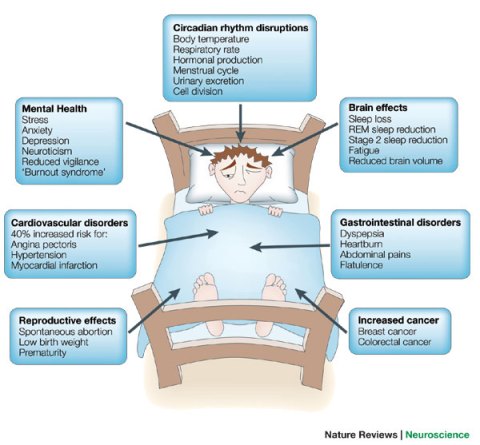As an owner of a factory you may have noticed silly but costly mistakes made by your employees, you may believe this is just due to lack of concentration but this could be due to the shifts they are having to work. Shift work can dramatically disrupt workers sleep making them unable to concentrate and focus on important work. Amy Allsopp looks at why mistakes are more common amongst shift-workers and how employers can help to reduce these costly errors.
People who work shifts are prone to lack of sleep due to the hours they have to work, the time they work is often the time they want to be asleep while the time in the day when they do not want to sleep is often when they are not at work. This can cause massive disruption of biological rhythms such as the sleep wake cycle and could lead to long term sleep deprivation. Although night workers are vital to the smooth running of the factory they are more often than not the cause of big mistakes and accidents that can often have a costly effect on the business. This is because of the decreased alertness because of their lack of sleep.
As well as the shift work causing potential accidents within the workplace studies have shown that shift work can also cause major health problems. In 2008 MM Martino discovered a strong correlation between shift work and a range of different organ diseases. He found that workers who have been working shift work for the around 15 years are at greater risk of developing heart or kidney disease. He believed that this is because of the constant desynchronisation of biological rhythms which would often lead to major sleep deprivation.
Many researchers have looked into how you could reduce the risk of mistakes and sleep deprivation for shift workers. One of the most common suggestions is to enforce the rotation of shifts where the shifts would alternate around every three days. Also forward rotating shifts have been considered where for example an employee may have a morning shift one week followed by afternoon shifts the second week and then finally a night shift on the third week, this would then be repeated. This is believed to be much more beneficial causing much less damage to the workers health, also lessening the chance of mistakes. A final suggestion is the use of artificial lighting in the workplace. Our biological rhythms (particularly the circadian rhythm) are massively influenced by the light, for example when there is bright lighting we feel much more awake compared to if we are somewhere dark. The use of artificial lighting has been proven to make the circadian rhythm last longer meaning people were less tired and will be more able to focus on the work they have to do.
Who knows the costly mistakes that could be caused by unfocused and tired employees but there are successful ways that have been proven to be effective ways to make sure shift workers are always on high alert, preventing anything from going wrong.
